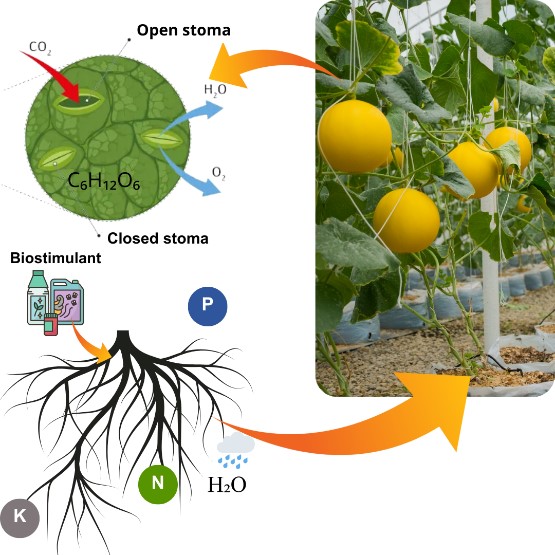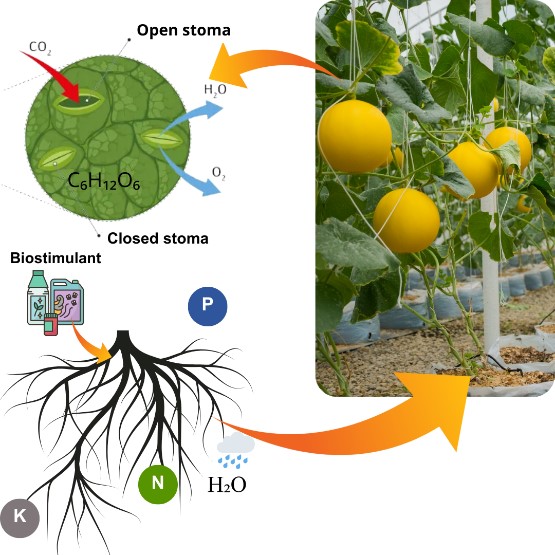Gas exchange in yellow melon (Cucumis melo) crop under controlled water deficit (RDI) and application of a biostimulant
Keywords:
Cucumis melo, physiology, irrigation managementAbstract

The São Francisco River Valley region in Brazil is a major producer of irrigated melons, facing stresses due to climate change. New strategies for crop management are essential to maintain sustainable cultivation. This study aims to evaluate the characteristics of melons under controlled irrigation deficit (RDI) and the use of a biostimulant. The experiment followed a completely randomized design with sub subdivided plots. The main plots represented water levels: full irrigation (100% soil water availability - SWA) and deficit levels (80%, 60%, and 40% SWA). The subplots represented biostimulant application (with and without), and the sub-subplots represented collection periods: time I (17 to 26 days after planting - DAP), time II (27 to 36 DAP), and time III (37 to 46 DAP). The variable analyzed was gas exchange. Water restriction affects melons; however, some physiological characteristics show greater tolerance, demonstrating an adaptive response to moderate water deficit (80% SWA), regardless of the evaluation period. This allows for better water use efficiency. The biostimulant applied was not effective in promoting adjustments in the evaluated gas exchanges.
Highlights:
- Gas exchange is influenced by irrigation management and involved in plant production.
- Biostimulant application promote plant growth and development.
- The use Regulated deficit irrigation (RDI) strategy in irrigation management, optimize water use efficiency without compromising yield.

Downloads
Published
Issue
Section
License
Copyright (c) 2018 Revista de la Facultad de Ciencias Agrarias UNCuyo

This work is licensed under a Creative Commons Attribution-NonCommercial-ShareAlike 3.0 Unported License.
Aquellos autores/as que tengan publicaciones con esta revista, aceptan las Políticas Editoriales.


